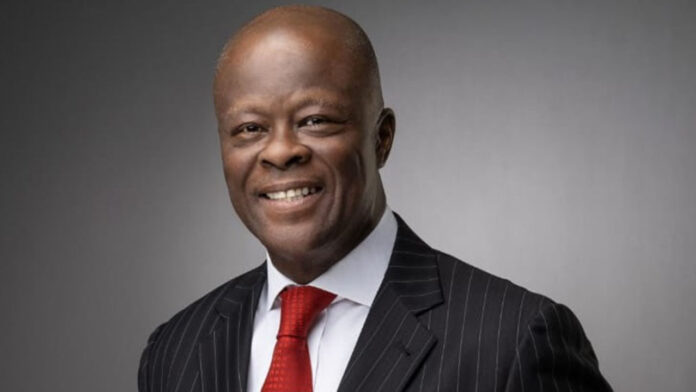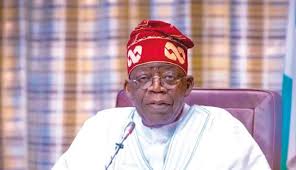Chairman of the South-East Development Commission ( SEDC ),Senator Orji Uzor Kalu has expressed confidence that President Bola Ahmed Tinubu will complete his two terms in office considering the level of successes he recorded in bold economic, social and political policies.
The Abia-North Lawmaker stated this on Tuesday while fielding questions from the Senate Journalists, who ambushed him at the lobby of the National Assembly.
Among other responses, the former Senate Chief Whip faulted narrative of the annulled June 12, 1993 Presidential election given by the former military president Ibrahim Babangida in his autobiography, ‘A Journey in Service describing IBB’S account as incomplete.
According to the former Abia Governor Babangida failed to mention the names of the Principal Actors that led to the annulment of the election widely adjudged as the freest, fairest, and most credible poll in the history of the country, that Chief Moshood Kashimawo Olawale Abiola, popularly known as MKO Abiola, was the winner.
Giving more reasons why believed that President Tinubu will win a second term in office in 2027, Kalu pointed out that the ruling Party the All Progressives Congress ( APC ) remains firm in its decision to cede its 2027 Presidential Ticket to Tinubu in line with the zoning arrangement to maintain a North-South power balance.
Additionally Kalu mentioned the economic reform Policies of the President which he said iis already delivering positive economic results.
Using the Manufacturing sector as an example Kalu stated that the cost of production had reduced to 18.5 percent from 23 percent which it was last year.
He said; ” The good news is that we shall win again and President Tinubu will return.
“To be honest with you Asiwaju will win, many Presidents in Nigeria who have not done very well—I won’t call any names and they won their second term. We are appealing to Nigerians to support us.
“We are not going to ruffle ourselves with the APC convention. We have only one Presidential candidate which is Asiwaju Bola Ahmed Tinubu.
“In line with democratic ethics we are not looking for any other person or candidate but the problem of Nigeria is that you people don’t like to consolidate gains of reforms.
Asking Nigerians to exercise more patience with the administration, Kalu said the stability in the exchange rate is also another indication that the President’s reforms are yielding positive results.
“It might be very difficult today, very hard and people are complaining but the reform is trickling down, somebody just told me this morning that the Dollar is 1490, so the reform is working but we should be patient.
“I am a manufacturer and I can tell you that Manufacturing costs have gone up, last year it was 23 percent but early this year it has gone down to about 18.5 percent. You can confirm from the The Lagos Chamber Of Commerce And Industry (LCCCI) what I am giving you is the real fact.
“I believe that there is hope in these reforms. It is difficult everywhere in the world but the most important thing is that initially they were done in a hurry now the President is taking time with his economic team and you can see that the President is making wilder consultations.
Speaking on a recent Book released by former Military president Ibrahim Babangida, Kalu stressed that he anticipates a second edition as IBB’S account of June 12 failed to capture the entire events that led the annulment of the 1993 Presidential elections.
Though Kalu appreciated the President for admitting that Moshood Abiola was the true winner of the election, he however said that the former Military president ought to have mentioned the names of those behind the annulment including the courageous role played by the then National Electoral Commission (NEC), Humphrey Nwosu.
He said; “Ibrahim Babangida is my Master and everybody knows and I am going to visit him very soon and discuss with him.
“I am waiting for the second edition. The first edition did not reveal all the realities of what happened, especially when it concerns Humprey Nwosu and INEC.
Babangida should tell us , not only Abacha, he should mention names of those who stopped him from declaring Abiola as the winner.
“I was there and I know what happened, he published a second edition and mentioned their names and Nigerians will know what really happened.
Kalu also thanked Babangida for erasing the false narrative that the Igbo Tribe orchestrated the 1966 coup events that led to the military mutiny that ousted the then civilian administration led by Prime Minister Tafawa Balewa.
“Because people are thinking that Babangida lied but I am very grateful the coup they called Igbo coup has been clarified , although I don’t need Babangida to tell me that the Coup was not executed by the Igbos , that is why I am a true Nigerian.
“That coup was a Nigerian coup planned and executed by the Military and some people failed to do their job and their Igbos are bearing the brunt and that is not fair to the Igbos.
Following the confession of Ibrahim Babangida, Kalu appealed to President Tinubu to accord the Late Presidential Candidate Moshood Abiola full Presidential honours.
Kalu urged Tinubu to swear in Abiol as the duly elected President of the June 12 , 1993 Presidential election in Postmortem and including the inclusion of his Presidential portrait among other Past Presidents of the Country.
According to Kalu through such the Abiola family will be healed and compensated from the electoral tragedy which befell them and the nation.
“Abiola won the election and there is no doubt about that , I want them to put Abiola’s picture where other former President’s pictures are placed. I will appeal to President Tinubu to swear him in Postmortem.
“I am thankful to President Buhari who gave him the National Award but he should be sworn in Postmortem so the family will be healed and given the rights they give to former President’s.
Kalu urged Nigerians to protect the Nation’s democracy, he also paid solidarity to the Nigerian Army for the sacrifices while calling for investment in the Agricultural sector as well as the elimination of Terrorists occupying the Nation’s land areas.
Kalu discouraged the disbursements of cash grants to individuals to solve the economic challenges;
“The Nigerian democracy has come to stay and I am very grateful to the Nigerian Army and their sacrifices. Some of them are being killed in the battlefield trying to safeguard our Nation.
“We must go back to Agriculture to make progress. We must retrieve our lands occupied by bandits and other Terrorists. Dashing of money should stop. We should put those money to Agriculture and other productive ventures, Kalu said.
When asked for his opinion of the face off between Senator Natasha Akpoti and the Senate President Godswill Akpabio over sitting arrangement, Kalu declined to comment saying that the incident was a matter that will be settled within the Senate Chambers as it would be an error to discuss such matter in public.



 He further emphasised that initiatives such as the direct benefit transfers scheme were vital in ensuring that economic growth translates into tangible improvements on the lives of Nigerians.
He further emphasised that initiatives such as the direct benefit transfers scheme were vital in ensuring that economic growth translates into tangible improvements on the lives of Nigerians.







